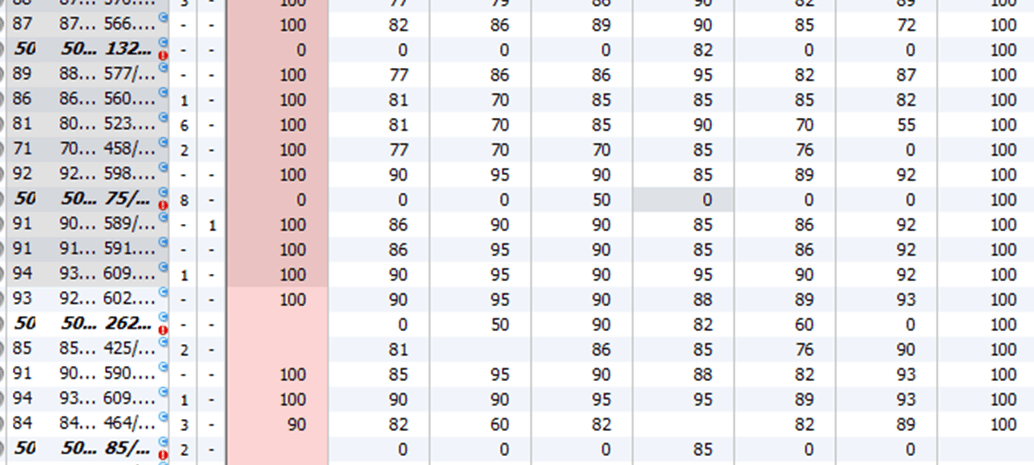This past year, many school systems decided to make a “50” the lowest possible grade a student could receive for a quarter grade on a report card.
Let me explain. In a four-quarter system for a yearlong A/B class like an AP course, a student could do absolutely no classwork, complete zero assignments, write no papers, and refuse to answer any questions on any assessment and get a zero for a quarter score while that student was present for class.
Yet, by policy, I would still have to give that student a “50” for the quarter. That’s ten points below a passing grade for doing nothing.
I could have a student who is busting his/her rear to complete work, but is not mastering the concepts as quickly as others. I offer tutoring, extra credit, and differentiate instruction, but that student is still struggling. That student gets a 65 for the quarter.
I would have to say there is more than a fifteen point differential in the performance of the two students.
It is hard to fathom, but there are students who literally can do nothing for over half the year (or semester for a block class) and still salvage a passing grade in a class where other students have literally sweated and toiled just to pass. They simply pass two quarters and the state exam — an exam that is not made by the teacher but a third party and graded by a third party who then can designate a conversion formula to alter the outcome.
I don’t like it.
Proponents of this policy for a “50” being the lowest possible quarter grade argue that it allows a student to not be placed in a hole of academic failure for a bad quarter. It gives them a chance to work out of the abyss of failure.
However, when you place a 10 point letter grade system for all high schools in North Carolina where a “60” is a “D,” it means that 41 of the possible 51 quarter “averages” one could possibly obtain (60, 61, 62, … to a 100) are passing grades. Only 10 (50, 51 … to 59) are failing.
I am not sure that this is saving grades for students or actually enabling many of them to play the system.
Think of it this way. I am getting older. My metabolism is not what it used to be. My body does not have that teenage ability to heal quickly and take the demands of rigorous sports activity. Consequently, I weigh more than I did years ago.
What if all of a sudden, the state’s health department changed the guidelines by which obesity is defined? All of a sudden, in the eyes of the medical community, I am not as overweight as I was in previous days because the classification has changed; the measurements have been modified.
Does that make me healthier all of a sudden? No. My body is still my body. You can’t make it healthier by changing the criteria.
But we can make students more successful academically using the same logic? I don’t think so. What if we extended this policy of inflation for other areas of students’ lives? It would be hard to do that in this economy without repercussions. Many of the students in my classes today have jobs. If they decided not to show up for work without an excusable reason, then they will get fired. If they drive a car and they (or their families) miss a car payment, then they will lose the car.
I guess my point is that we are not doing students a great favor by artificially raising a bad grade due to lack of performance and work. When doing no work at all can still get you half of the points available in a quarter grade, students might be getting a message that that cushion will exist for them at all times.
It won’t.
A good teacher will work with a student, if the student is willing to work. There is tutoring. There is spending extra time looking over a paper or problem. There is conferencing. There are lots of available options to help a student raise a grade that involves still learning the material. The higher grade is authentically earned.
In that respect, students learn to advocate for themselves. And that will serve them wonderfully throughout all of their lives, especially when there is no safety net placed under them to simply raise graduation rates.
But if someone asks you if you know of something that can go from 0-50 faster than a formula-one race car, you now have an answer – a student’s quarter grade.



